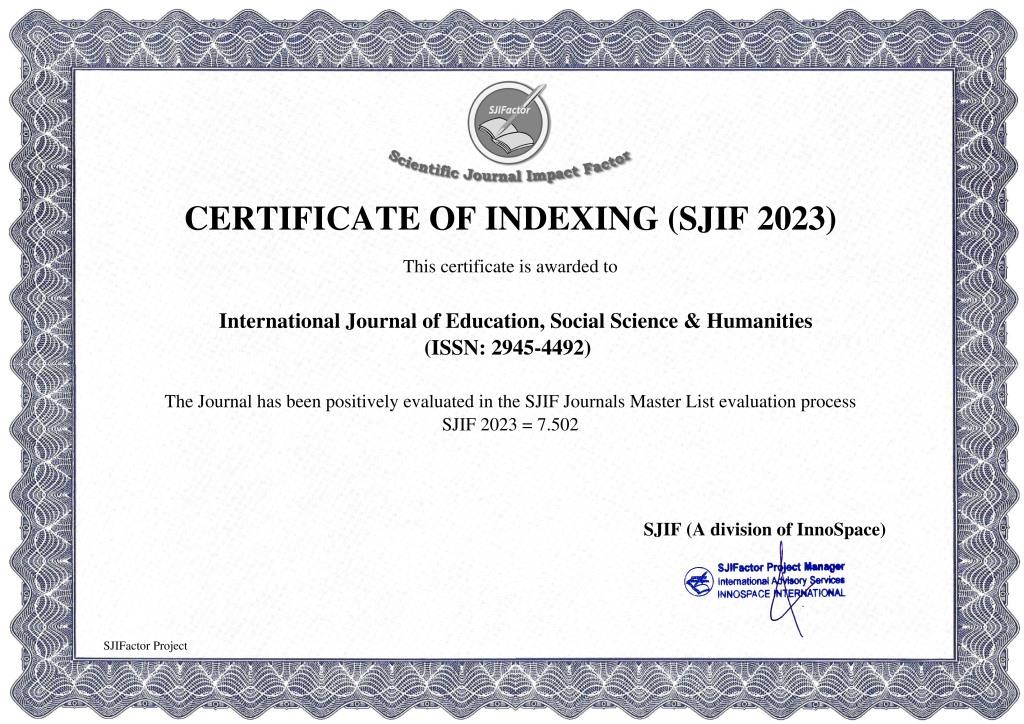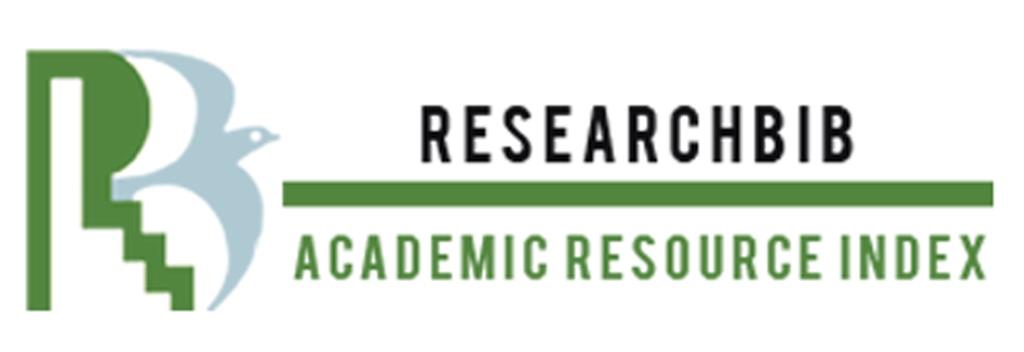MODERN RUSSIAN LITERARY LANGUAGE
Keywords:
evolution, historical cultural shift, Russian literature, national language, literary style.Abstract
This scientific article deals with the development of the modern Russian literary language, the historical and cultural shifts that have taken place in Russia, and the evolution of Russian writers and scientists' attempts to create a national language that accurately reflects the diverse nature of Russian society.
References
-George Orwell. Politics and the English Language. Renard Press Ltd, 1/1/2021
- William Cran. Do You Speak American?. Robert Macneil, Knopf Doubleday Publishing Group, 12/18/2007
- Linda Pilliere. Intralingual Translation of British Novels. A Multimodal Stylistic Perspective, Bloomsbury Publishing, 4/22/2021
-Paul Jay. Global Matters. The Transnational Turn in Literary Studies, Cornell University Press, 6/13/2014
-Peter N. Stearns. Why Study history?. Marcus Collins, Do Sustainability, 5/27/2020
- Stuart hall. Representation. Cultural Representations and Signifying Practices, SAGE, 4/8/1997
- Alan Nash. The Elements of C Programming Style. Jay Ranade, McGraw- hill, 1/1/1993
- Phil Williams. Word Order in English Sentences. English Lessons Brighton, 2/25/2016
-B. Richards. Linguistic Categories: Auxiliaries and Related Puzzles. F. heny, Springer Science& Business Media, 8/31/1983
- Elisa Mattiello. Analogy in Word- formation. A Study of English Neologisms and Occasionalisms, Walter de Gruyter Gmbh& Co KG, 5/22/2017
- Manuela Szepan. Borrowings from other languages as adoptions of novel cultural influences. GRIN Verlag. 11/7/2007
- Xiaoli Yu. Analyses and Comparisons of Three Lexical Features in Native and Nonnative Academic English Writing. University of Central Florida, 1/1/2018
-Prince D. S. Mirsky. Modern Russian Literature. Oxford University Press, h. Milford, 1/1/1925














